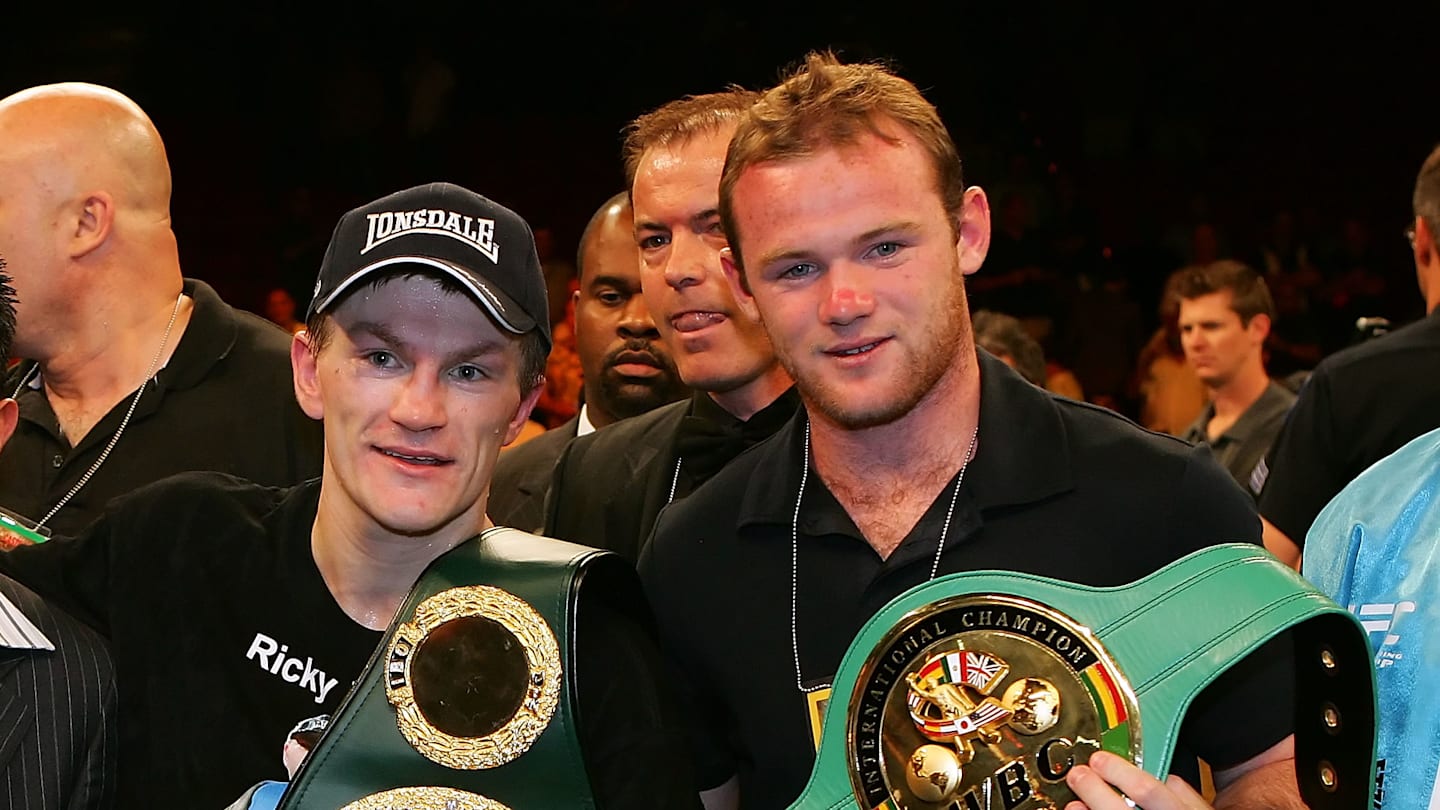Sports
Wayne Rooney ‘devastated’ after death of boxing legend Ricky Hatton

Wayne Rooney has shared an emotional tribute to his friend and boxing legend Ricky Hatton following the tragic news of his death at just 46 years old.
Hatton, a former world champion boxer, was found dead at his Manchester home on September 14.
While the cause of death has not been revealed, police have confirmed that it is not being treated as suspicious.
Rooney, 39, had a close friendship with Hatton, having famously carried his belts into the ring ahead of Hatton’s victory over Jose Luis Castillo in Las Vegas in 2007. Speaking on The Wayne Rooney Show, he reflected on the devastating loss.
“Ricky was such a good lad and a good person,” said Rooney. “He captured the nation’s heart. The support he had was incredible, and people followed him everywhere.”
Rooney also expressed his condolences to Hatton’s family and friends, saying: “I want to pay my condolences to his family and everyone who was really close to him. It’s way too soon.”
The former Manchester United and England striker shared that he received the news of Hatton’s death shortly after playing in a legends exhibition match for Manchester United in South Korea.
“It hasn’t fully kicked in yet,” Rooney added. “It’s devastating. Heartbreaking.”
“Just devastating.”
Wayne Rooney pays tribute to his friend Ricky Hatton. pic.twitter.com/BzrKHDF7Bj
— BBC Sport (@BBCSport) September 14, 2025
Rooney wasn’t the only footballer to pay tribute to Hatton, who during his glittering career in the ring held world titles in two weight classes – light-welterweight and welterweight.
Jack Grealish, sharing his condolences on Instagram, described the boxing legend as a “true legend” and “absolute diamond” every time they met.
“Such sad news man,” Grealish wrote. “My thoughts go out to his family and friends. RIP Hitman.”
Roy Keane, Micah Richards, and countless others from the football world also expressed their sorrow, as did Tyson Fury from the boxing community. The heavyweight champion shared his grief on Instagram, saying, “Rip to the legend @rickyhatton may he rip. There will only ever be 1 Ricky Hatton. Can’t believe this, so young.”
READ THE LATEST FASHION, CULTURE AND LIFESTYLE CONTENT FROM 90MIN










